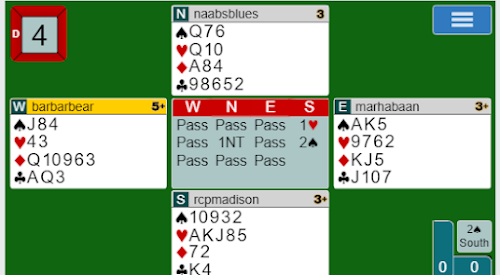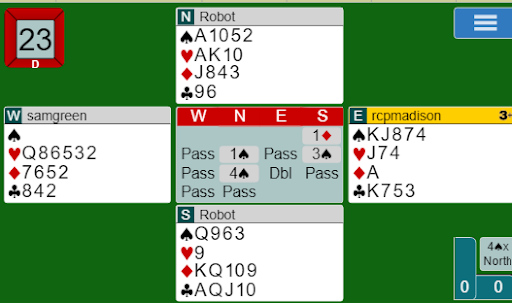Jean
and I moved into our house in April 1986.
Up until 2021, Mr. Ward lived across from us. Mr. Ward, his wife, Dolores, and two sons,
Gary and Jeff, were a fixture in our neighborhood. Mr. Ward had been a powerful union steward for
the Steamfitters Union In Madison. When
we moved into our house he was retired.
He was always a great neighbor and he had a sense of humor. He would show up at our annual July 4th
cookouts in different, silly outfits. He
enjoyed a good laugh. He let me observe
a great ruse which I had read about but never actually seen anyone accomplish,
a snipe hunt.
It
was a nice autumn day when our neighborhood boys were in middle school many
years ago. They are now married and
most of them have kids of their own. I
saw Mr. Ward standing out in the driveway in front of his house. I decided to walk over and see what was going
on.
“How
you doing, Mr. Ward? It is a nice day.”
“Yes,
it is a nice day. I got the neighborhood
boys in the backyard helping me out.”
“What
are they doing?”
“They
are hunting snipe. I have a terrible
snipe problem. Those blasted snipe are
eating all of my flowers. I am worried
my flowers won’t come up in spring. I
asked the boys to help me. They said
they would. I gave them each a grocery bag and I told them that I would pay
them $1 for each snipe they caught in the bag.
I would then relocate the captured snipe to some type of animal
reserve. But I need to get them out of
there. They are ruining my flowers.”
I
thought, “This is odd. Mr. Ward has only
limited use for flowers. His wife,
Dolores, is the one who likes flowers.”
My curiosity was piqued and so I decided to find out more.
I
responded. “Oh yes, the famous Wisconsin snipe.
They are small flightless birds.
But they are extremely fast. It
is very hard to catch one. I read
stories of people trying to catch them but they ultimately failed. I hope the neighborhood boys have more
success.”
Mr.
Ward looked at me and winked. He knew I had
knowledge of his ruse. He did not mind
having a co-conspirator.
I
asked, “How long do you think it will take the boys to remove the snipe?”
Mr.
Ward responded, “It is hard to say. I think it could take most of the
afternoon. It is a nice day. I need to
get back to the boys to see if they have caught any of those blasted snipe.”
He
turned and again gave me another wink.
He then walked to his backyard.
Mr.
Ward added a few pebbles to his pocket before his snipe hunt. He also had help from his son Gary. Every so often, when the boys weren’t looking
either he or Gary would toss a pebble in one of the flower gardens in the
backyard. At the noise, one or both,
would claim they heard a snipe. After
that claim the boys would stealthily stalk to the flower bed looking for the
snipe. Mr. Ward warned each of them
before the start of the snipe hunt that snipe were very wary creatures. You had
to be silent while approaching them. If you made any noise at all they would
bolt and you lost your chance to catch them in your grocery bag. The snipe hunt
went on for most of the afternoon.
Word got around quickly in the neighborhood
about Mr. Ward’s snipe hunt. The next day I saw one of my neighbors bringing
their garbage cart up for Monday pickup.
I
asked, “How are things going?”
They
responded, “They are going well. I heard
some of the neighborhood boys were helping Mr. Ward hunt snipe. The snipe were in his flower gardens eating
the flowers. The boys were there to
catch them for him.”
”Did
they catch any of them?”
“They
heard them a lot but couldn’t catch one.
Snipe are really hard to catch. The
boys were really disappointed. They
really wanted to help Mr. Ward by catching his snipe in the worst way.”
My
neighbor was very serious as we talked about the snipe hunt. I had a hard time restraining myself from
laughing while talking to the neighbor.
I went home and I laughed until my sides ached.
Mr.
Ward did it. Not only had he sold his
snipe ruse to the boys but he had also sold it to older neighbors. I admired Mr. Ward greatly for his
“believable” snipe hunt.
Mr.
Ward came out later to place his garbage cart on the curb for Monday
pick-up. I walked over and spoke to him.
“How
did the snipe hunt go?”
“Well,
you know it was a little disappointing.”
“How
so?”
“The
boys weren’t able to catch any of those blasted snipe. We heard a lot of them moving around in the
backyard but they were just too sneaky and fast for the boys. After three hours, I told them it wasn’t
worth the effort because the snipe go underground and you can’t find them in
the late afternoon. I gave them each a
dollar, collected the grocery bags, and sent them on their way.”
I
then related my conversation with the neighbor regarding how the boys did not
catch any snipe and how neighbors were disappointed the boys could not help him
out with his snipe problem.
Mr.
Ward smiled. He knew he pulled off one of the greatest ruses of all time. He appeared satisfied with the results.
He
responded, “Those blasted snipe also multiply like mad. I think maybe the boys may have more success
next year catching them. I got to keep
them snipe out of my flower beds. They just ruin my flowers.”
With that response,
he winked at me again, turned and walked back into his house.




























